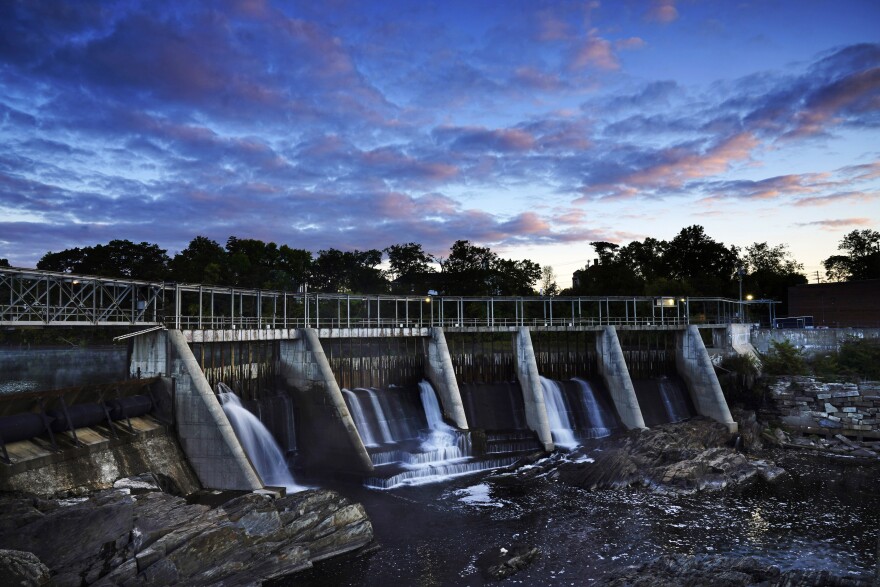A national conservation group has identified three Maine rivers as being among the nation's most endangered natural resources. American Rivers says federal regulators should take strong action to restore vital upstream habitat for endangered Atlantic salmon. But the owners of 15 dams on those rivers say they already have adequate plans in place.
The group calls the Colorado River the country's number one most endangered river. But it also groups together three in Maine for special attention — the Kennebec, Union and Penobscot Rivers.
Jessie Thomas-Blate directs river restoration programs for American Rivers.
"The habitat in Maine is particularly key for Atlantic salmon, and if they can't access the rivers in Maine, then the Atlantic salmon on the east coast likely will not recover," Thomas-Blate says.
Thomas-Blate says that the designation aims to bring nationwide attention to the suite of rivers as the species' only hope of avoiding extinction. Her group is calling on federal agencies regulating some 15 dams on those rivers to prioritize fish access whether by state-of-the art fish passageways or by dam removal.
Brookfield Renewable U.S., a subsidiary of a Canadian energy company, is at loggerheads with Maine conservation groups and the administration of Governor Janet Mills over the fate of those dams. In a recorded statement, company spokesman David Heydrich says getting past Brookfield's dams isn't the salmon's real problem - it's climate change.
"Scientific studies confirm the greatest challenge to Atlantic salmon recovery in Maine is significant marine mortality resulting from changes brought about by climate change, and not the existence of hydro-electric dams, most of which have been present for the past century," Heydrich says. "We've seen salmon sea returns precipitously declined in the early 1990s with the onset of climate change impacts."
Brett Ciccotelli, a biologist with the Downeast Salmon Federation, says climate change is a real challenge for salmon and other sea-run species that were once abundant in Maine's rivers. But, he adds, impoundments can allow waters to warm even more, while dams block fish from getting to habitats that would be a refuge against climate change.
"Dams that chop up fish and block them from getting to habitat that actually is resilient," Ciccotelli says. "As New England gets warmer there are some places that are going to be appropriate for salmon to live still. We have cold water in the ground and cold water in the mountains, where those fish will be able to hang on. But not if they can't get there."
A Lawsuit that conservation groups brought against Brookfield for killing salmon and violating the Endangered Species Act is expected to go to trial this summer, while other legal actions and federal licensing actions are pending.
Copyright 2022 Maine Public. To see more, visit Maine Public. 9(MDExNDI3NjUzMDEzNjkzMTgzNTExNDFlYQ004))




